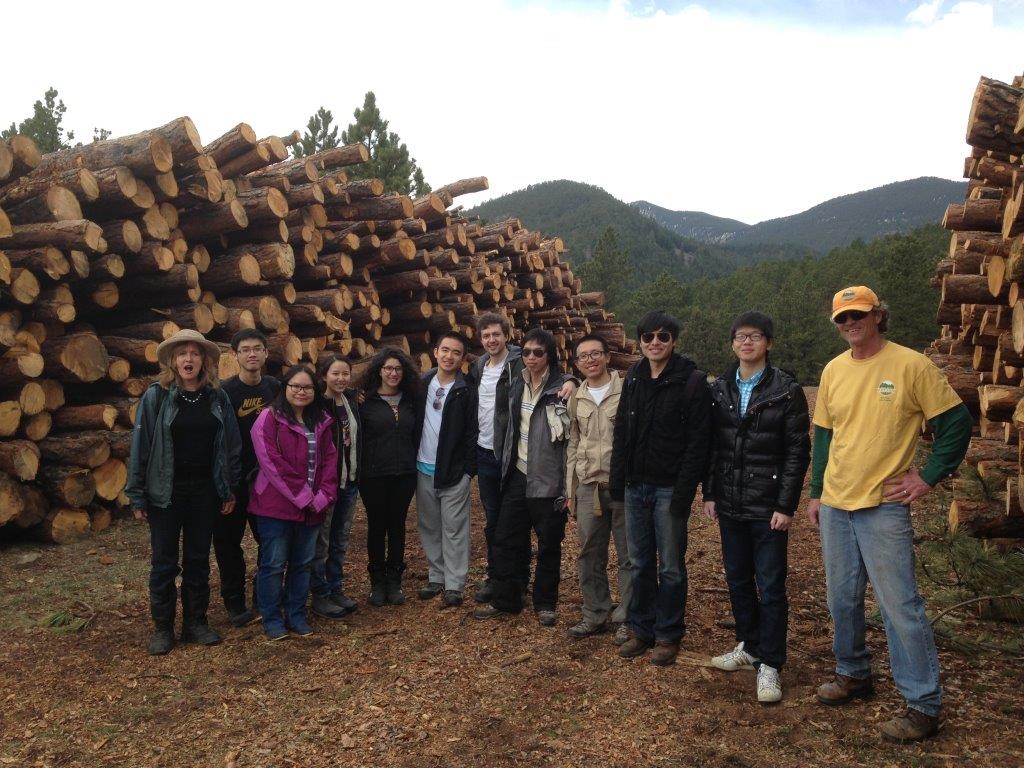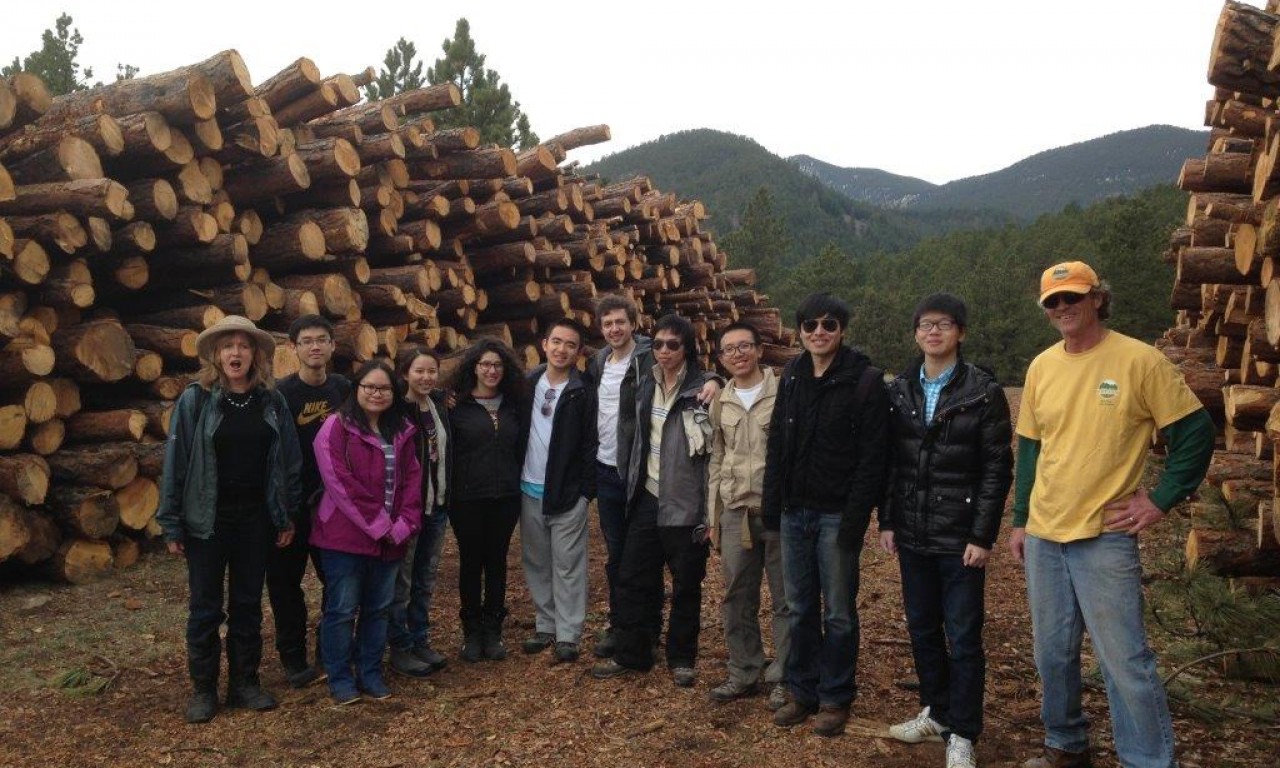CU-Boulder’s Program for Writing and Rhetoric coordinates each semester with Boulder County Parks and Open Space to organize outdoor service projects. Students engage in a volunteer project and then write an essay about the experience. Below are two outings that convey how valuable these events are to students and, we hope, to the County.
[one_half]
International Students Discover the Front Range
Twenty-seven University of Colorado students carpooled to Heil Valley Ranch one Saturday for a reforestation project on a chilly April morning. We drove a group of foreign students up, most of them from mega-crowded cities in mainland China. They gazed wide-eyed out the car windows at the greening foothills.
In their writing courses, these students research and write about sustainable practices while engaging in hands-on service-learning with community organizations such as Boulder County Parks and Open Space.
Volunteer Coordinator and Forester Shane Milne organized the project: an activity to minimize the possibility of destructive fires occurring in Colorado’s increasingly dry summers. Shane explained that students would be prepping the forests for a controlled burn. The forests had been thinned a few days before and heavy trucks had hauled out the thick pine logs. What remained was a mess: pine branches lopped off from the trunks and strewn over acres of forest. Some branches lay heaped up beneath tall pines that, if lit in a burn, could ignite living trees.
Groups were formed and given McLeods to work with. We watched as my students dragged unwieldy tree limbs while talking in Chinese and groaning with one another. We cringed. We had told them the project would probably involve planting seeds in the forest.
Over the course of four hours, though, they worked their way up the mountain. When they were done, the students were proud to hear Shane announce that they were able to “rehab approximately 40 acres of forest.”
Students had a wide variety of responses to the project. Many Chinese students mentioned the “freshness” of the air and beauty of the mountains. Others were struck by the hard physical labor involved. One graduate student from Beijing got weary midway through the project but “could only sit for a couple minutes because I could not forgive myself if the fire damages the forest due to my breach of duty.”
A student from Taiwan expressed the satisfaction felt by many: “When we were going to leave, all of us looked very tired. But I looked back at the mountain and saw how much work we did,” she said. “I felt very proud of our class … Suddenly I was not tired anymore but was happy that I was one of the people preserving the environment.”
[/one_half]
[one_half_last]
Undaunted: An Afternoon at Heil Valley Ranch
A CU Suburban arrived at Heil Ranch with eight students and one instructorme, Rebecca Dicksonto do some restoration work with Shane Milne. But as we piled out of the Suburban, we heard a loud hissing. Not a snake, no; it was our quickly flattening back tire. What to do? A call to CU Transportation Services yielded this: “Can’t you fix it yourself?” Fine thenwe wouldor rather, Shane would fix it, along with help from a student named Travis.
Forty-five minutes later, we had a viable tire back on the Suburban and, undaunted, we set out to do our service event. The heavy equipment that removed the trees had left behind some significant scars on the landscape. Our job was to go in and fix it, by hand, with McLeods (students called them “big rake-like things”).
And that’s when the bonding occurs. Students work side by side: first-year students with graduating seniors, astrophysics students with economics majors. Women and men, younger and older, smaller and biggerall of them sharing a task and a laugh and their water bottles. (We don’t recommend the latter, but it happens.) They meet new folks and at the same time learn a new appreciation for the ways that communities can nurture the land. And they serve as volunteers, many times for the first time in their lives. They also get outside into a pleasant locale for a bit. They forget the pressure of classes and grades. And they frequently decide that there’s nothing like sweating together to form a bond with others.
It’s uncanny how many subsequent papers start like this: “I expected not to like this event but ended up liking it.” Of course, they write this after the hard labor is behind them. Nonetheless, I believe it is sincere. Students connect with each other and their instructors and community in ways that they don’t typically experience at a big university like CU. That, along with the good work we do, makes the service highly worthwhile.

[/one_half_last]


